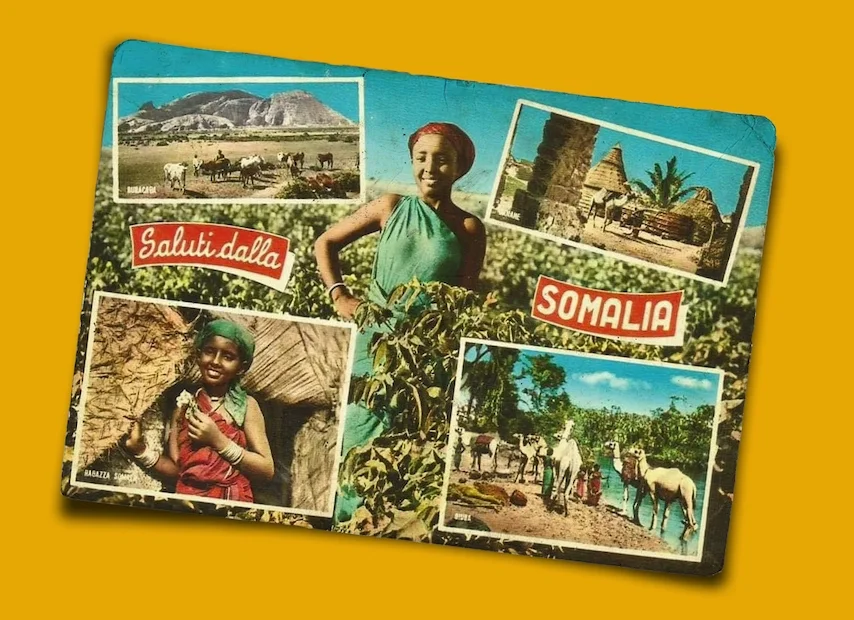The Platform
Latest Articles
by Sheiknor Qassim
by Mohammad Ibrahim Fheili
by Syeda Tahreem Bukhari
by Theo Casablanca
by Mirza Abdul Aleem Baig
by Staikou Dimitra
by Vince Hooper
by Manish Rai
by Samridhi Nair
by Muhammad Ismail Anshari
by Sheiknor Qassim
by Mohammad Ibrahim Fheili
by Syeda Tahreem Bukhari
by Theo Casablanca
by Mirza Abdul Aleem Baig
by Staikou Dimitra
by Vince Hooper
by Manish Rai
by Samridhi Nair
by Muhammad Ismail Anshari
Restoring the Roar: Somalia’s Struggle for Sovereignty and Revival
Somalia’s future can be marked by prosperity and stability, but first, some hard truths must be acknowledged.
Somalia is a land of immense promise—blessed with natural resources, a resilient and youthful population, and a coastline of strategic importance unmatched in the region. Its deep-rooted history and ancient cultural traditions predate those of many nations in what is now referred to as the Global North. As the world’s geopolitical plates shift, Somalia stands poised for a potential renaissance—not as a country perpetually cast in the shadows of conflict but as a rising hub for commerce, trade, and tourism that connects global markets.
There was a time when China was dismissed as a “sleeping dragon” and India as a dormant tiger, both seemingly consigned to stagnation. But three decades ago, they each awoke—reclaiming their place at the forefront of global trade and technology, drawing from their long histories. Africa, too, holds such potential. Like them, it can rise once more.
To do so, the continent—and Somalia in particular—must reclaim its ancient knowledge, cultural identity, and intellectual legacies. It must cast aside the externally imposed caricatures and internally cultivated defeatism. Contrary to popular assumptions, Somalia does not suffer from a lack of talent, ambition, or heritage. What it lacks are leaders with the integrity and independence to chart a course unburdened by foreign influence. For too long, self-serving figures—more loyal to their backers abroad than to their people—have shaped Somalia’s destiny.
Changing this trajectory requires a psychological shift as much as a political one. Somalia must transition from viewing itself as a victim to taking ownership of its story. Its cultural and entrepreneurial history must be mobilized not only as memory but as the foundation for a new narrative—one of strength, purpose, and reclamation. No one undermines sovereignty unless that sovereignty is relinquished. More broadly, it is time for Somalia and Africa to seize the pen and author their future.

The fall of Somalia’s central government was not a historical fluke. It was the outcome of deliberate meddling by external powers, who weaponized one of the country’s oldest social systems—the clan. This structure, which historically ensured Somali survival, was manipulated into a tool of division. Once a pillar of community cohesion, it became a mechanism for fostering mistrust and rivalry.
Many Somalis failed to recognize how this structure was exploited. Outsiders saw an opportunity in clan divisions, and they capitalized. Weak and inefficient leadership—propped up by foreign dollars and diplomatic cover—emerged not from grassroots legitimacy but from transactional loyalty. These leaders dragged the country into disarray.
The culprits are not few. Gulf Arab states, European governments, neighboring African countries, and global powers have all played a role. Using aid, investment, and influence as levers, they coerced Somali elites into building policies and infrastructures designed not to uplift but to keep the country disjointed and exploitable. A “fistful of dollars” was all it took to entrench dysfunction.
This architecture of exploitation has had wide-reaching consequences: endless internal conflict, radicalization, and the suppression of genuine grassroots leadership. Poverty, insecurity, and displacement have become the currency of foreign interests, who profit while Somalis suffer. Somalia is rich, yet Somalis remain poor—trapped in a system engineered to siphon wealth outward.
And now, climate change adds another layer of injustice. Somalia, like much of Africa, faces intensifying droughts, floods, and famines—despite having contributed little to the emissions fueling this planetary crisis. The irony is unbearable: the countries that polluted the planet the most have left those who polluted the least to bear the harshest consequences.
This is not merely a Somali tragedy; it is a global failure. A stable Somalia benefits not only its people but also the Horn of Africa, regional trade networks, and international security. The stakes are global.
The so-called “international community”—a phrase that too often serves as moral camouflage for self-interest—must step back and allow Somalis to reclaim their autonomy. In truth, there is no singular international community; there are only nations pursuing their own interests. This ideological fiction should be retired.
Somalia must be empowered to protect its territory and resources. It must boldly pursue sovereignty with the moral clarity of nations like Burkina Faso, which have taken steps to reassert control over their own destinies. Clan structures must once again serve as frameworks for solidarity rather than mechanisms of manipulation.
To move forward, Somalia must confront the theft of its wealth. Illegal fishing in its waters and toxic waste dumped on its shores—these violations demand redress. Somalia deserves restitution. If India can seek compensation from the United Kingdom for colonial plunder—including the world-famous Koh-i-Noor diamond—then Somalia has every right to demand accountability from those who have plundered its land and sea.
The time for passivity is over. Somalia must stop seeing itself through the lens of victimhood. The nation’s wealth has been stolen. Now, it must be reclaimed.
Sheiknor Qassim is a Somali political activist and a prominent figure in the South West political landscape.